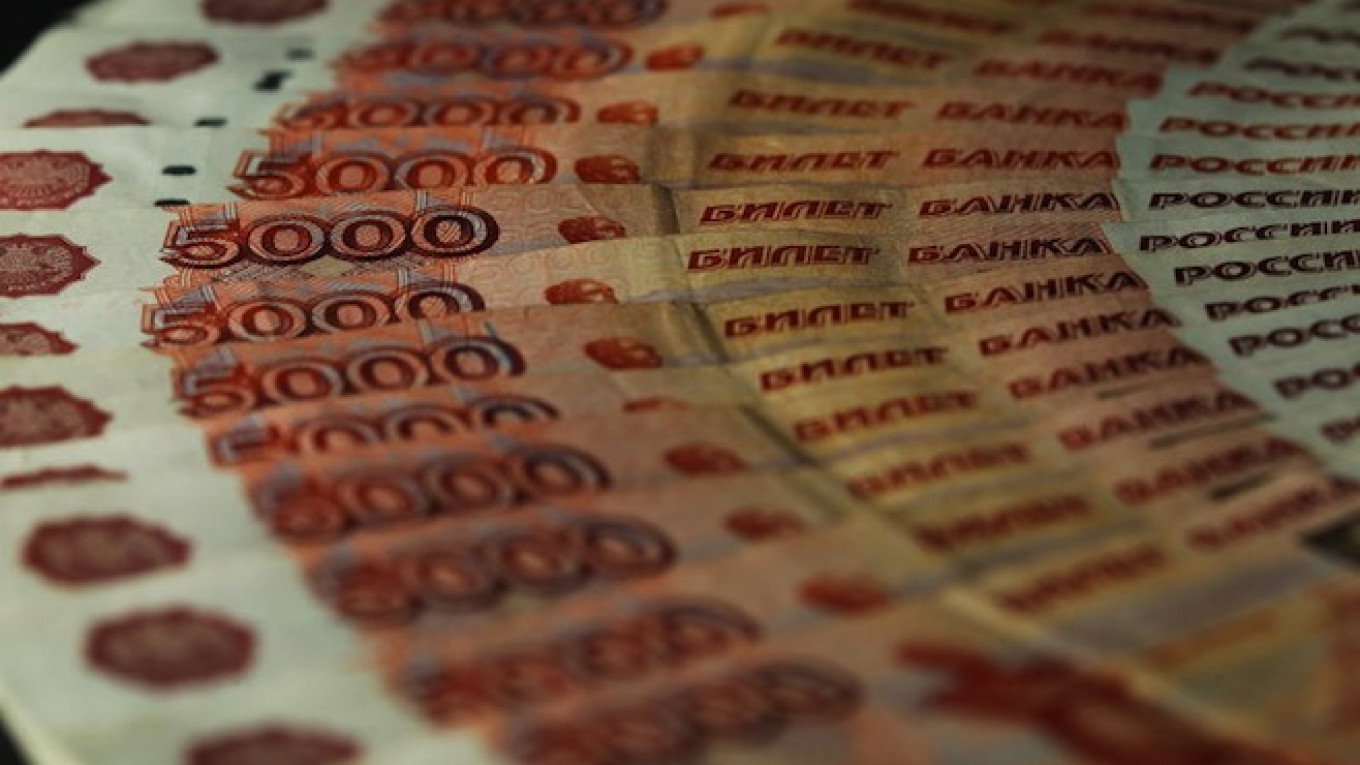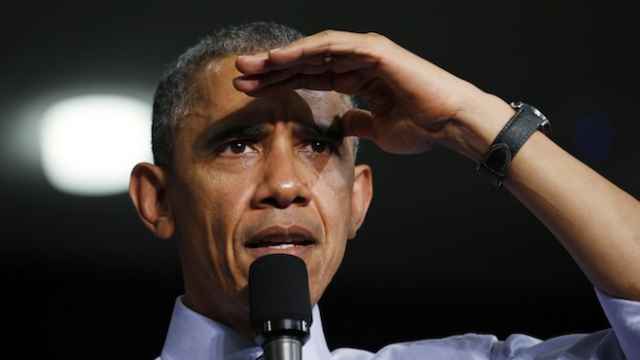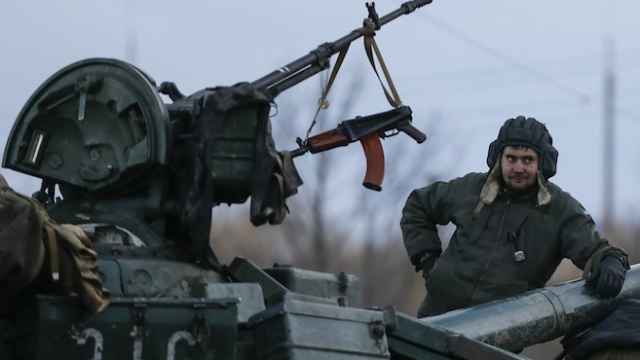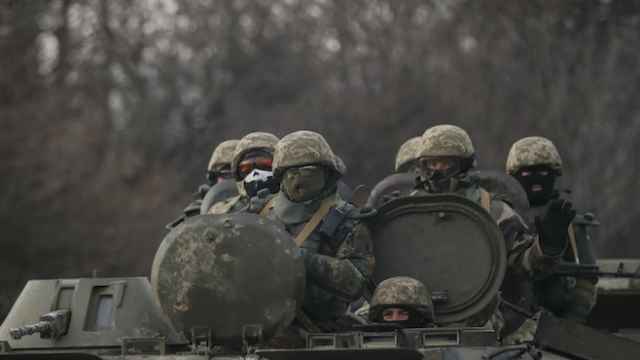Russian assets strengthened on Monday, supported by the prospect of new diplomacy in the Ukraine crisis and further government support for businesses hit by Western sanctions and the country's economic slowdown.
At 7:50 p.m., the ruble was around 2 percent stronger against the dollar at 65.65 and gained 2.35 percent to trade at 74.25 versus the euro.
Russian shares posted healthy gains, with the ruble-based MICEX index rising over 4 percent to its highest since April 2011 in early trade and the dollar-denominated RTS index rising by as much as 6 percent. Yields on Russian Eurobonds ticked lower.
The leaders of Russia, Ukraine, Germany and France have agreed to meet in Belarus on Wednesday to try to broker a peace deal for Ukraine, days after talks in Moscow involving the French, German and Russian leaders.
"The very fact that the meeting will take place means that many compromises have already been reached," Stanislav Kleshchev, chief investment analyst at VTB 24 bank in Moscow, wrote in a note.
Kleshchev said, however, that even if the negotiations yield results, the key question for markets would be how long it would take for Russia to normalize its relations with the West and for international capital markets to become accessible to Russian companies and banks.
Analysts said a document outlining 199 strategic firms eligible for aid under a government plan to help the rapidly slowing economy was helping boost appetite for equities.
The document included energy giants Gazprom, Lukoil and Rosneft; fertilizer producer Acron; and mining companies Alrosa and Norilsk Nickel.
Russia's ruble-traded MICEX index has gained around 30 percent since the start of the year, boosted by a combination of the weaker ruble, a slight uptick in oil prices and the view of some market participants that the fall in Russian asset prices has been overdone.
Brent crude oil was trading around 0.5 percent higher on Monday at around $58 a barrel, boosting both stock indexes and the ruble.
Oil is one of Russia's chief exports, and hence oil price swings have a significant effect on the Russian currency.
Analysts see continuing oil price volatility and Russian companies' onerous foreign debt repayment schedule as factors that could weigh on Russian assets in the near term.
Russian companies have around $36.5 billion in gross foreign debt repayments due in February and March, according to Central Bank data. These firms have limited access to refinance their debts abroad because of sanctions.
Rosneft must repay $7 billion of an existing two-year bridge loan later this week but is expected to make the repayment. Industry sources said the Kremlin-controlled oil major is raising money from Swiss trader Trafigura in the lead-up to the payment falling due.
A Message from The Moscow Times:
Dear readers,
We are facing unprecedented challenges. Russia's Prosecutor General's Office has designated The Moscow Times as an "undesirable" organization, criminalizing our work and putting our staff at risk of prosecution. This follows our earlier unjust labeling as a "foreign agent."
These actions are direct attempts to silence independent journalism in Russia. The authorities claim our work "discredits the decisions of the Russian leadership." We see things differently: we strive to provide accurate, unbiased reporting on Russia.
We, the journalists of The Moscow Times, refuse to be silenced. But to continue our work, we need your help.
Your support, no matter how small, makes a world of difference. If you can, please support us monthly starting from just $2. It's quick to set up, and every contribution makes a significant impact.
By supporting The Moscow Times, you're defending open, independent journalism in the face of repression. Thank you for standing with us.
Remind me later.






